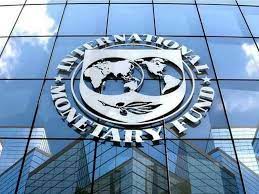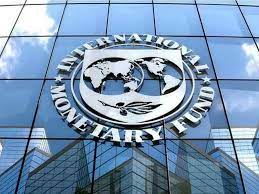
According to two sources, the International Monetary Fund (IMF) will make a decision on Argentina's $45 billion programme on Friday, with the country expected to cross the final obstacle to renegotiate its debt with the Washington-based lender.
The accord would be Argentina's 22nd IMF programme, and it comes after more than a year of negotiations. It would be a replacement for a failing $57 billion initiative from 2018, for which the government still owes more than $40 billion.
The deal's primary demands are to reduce the fiscal deficit, raise interest rates, and reduce energy subsidies. It does not call for labour or pension reforms.
The executive board meeting, which is planned for 1400 GMT, must reach an agreement through consensus rather than a vote. Following a series of meetings in the run-up to Friday, one person familiar with the IMF board's thinking indicated approval was "very likely." Another source stated that they were "personally optimistic."
The discussion comes after Argentina's Congress approved the agreement's financing on March 17, but not the policies expected to keep the economy on track and the debt sustainable.
Political schisms inside Argentina's ruling center-left coalition have grown wider as a result of the agreement, and there are fears that the economic terms would further burden the South American country's already-stressed population who are reeling with an inflation rate of more than 50 per cent.
However, goals may be difficult to achieve. JPMorgan raised its 2022 main fiscal deficit prediction to 2.8 per cent of GDP, exceeding the program's target of 2.5 per cent.
"The agreement fails to encourage the reforms needed to improve Argentina's growth inflation outlook," said Alejo Czerwonko, emerging markets Americas CIO for UBS Global Wealth Management.
"It will very unlikely trigger the positive confidence shock, increase in private investment, and access to international capital markets that the country badly needs."
If the scheme fails, the Fund's reputation will suffer as well. Argentina's 2018 programme was the IMF's largest in history.
Private holders of Argentina's debt, which is set to be restructured in September 2020, condemned the negotiations early on as polluted by politics, allowing the government to pursue "erratic" economic policies.
For the majority of last year, those restructured bonds traded in the low 30-cents-on-the dollar range.
"There's been a lot of criticism of this deal, that it's going to fall apart, that it’s an IMF-light deal, it's a Band-Aid… But it's an important Band-Aid," said Robert Koenigsberger, chief investment officer at Gramercy, adding that an IMF deal would bring in a lot of upside for bond prices.
"The only thing that would make this stuff worth less than 32 (cents), which is where it trades today, is if the wheels fall off the bus. What this IMF deal does is it tightens the lug nuts on the wheels, so to speak."
The suggested Extended Fund Facility programme has a four-and-a-half-year grace period, and Argentina will be subject to ten quarterly adjustments in order to receive disbursements. According to staff-level agreement documents, the country will receive $9.8 billion if the deal is approved by the board.
(Source:www.bloomberg,com)
The accord would be Argentina's 22nd IMF programme, and it comes after more than a year of negotiations. It would be a replacement for a failing $57 billion initiative from 2018, for which the government still owes more than $40 billion.
The deal's primary demands are to reduce the fiscal deficit, raise interest rates, and reduce energy subsidies. It does not call for labour or pension reforms.
The executive board meeting, which is planned for 1400 GMT, must reach an agreement through consensus rather than a vote. Following a series of meetings in the run-up to Friday, one person familiar with the IMF board's thinking indicated approval was "very likely." Another source stated that they were "personally optimistic."
The discussion comes after Argentina's Congress approved the agreement's financing on March 17, but not the policies expected to keep the economy on track and the debt sustainable.
Political schisms inside Argentina's ruling center-left coalition have grown wider as a result of the agreement, and there are fears that the economic terms would further burden the South American country's already-stressed population who are reeling with an inflation rate of more than 50 per cent.
However, goals may be difficult to achieve. JPMorgan raised its 2022 main fiscal deficit prediction to 2.8 per cent of GDP, exceeding the program's target of 2.5 per cent.
"The agreement fails to encourage the reforms needed to improve Argentina's growth inflation outlook," said Alejo Czerwonko, emerging markets Americas CIO for UBS Global Wealth Management.
"It will very unlikely trigger the positive confidence shock, increase in private investment, and access to international capital markets that the country badly needs."
If the scheme fails, the Fund's reputation will suffer as well. Argentina's 2018 programme was the IMF's largest in history.
Private holders of Argentina's debt, which is set to be restructured in September 2020, condemned the negotiations early on as polluted by politics, allowing the government to pursue "erratic" economic policies.
For the majority of last year, those restructured bonds traded in the low 30-cents-on-the dollar range.
"There's been a lot of criticism of this deal, that it's going to fall apart, that it’s an IMF-light deal, it's a Band-Aid… But it's an important Band-Aid," said Robert Koenigsberger, chief investment officer at Gramercy, adding that an IMF deal would bring in a lot of upside for bond prices.
"The only thing that would make this stuff worth less than 32 (cents), which is where it trades today, is if the wheels fall off the bus. What this IMF deal does is it tightens the lug nuts on the wheels, so to speak."
The suggested Extended Fund Facility programme has a four-and-a-half-year grace period, and Argentina will be subject to ten quarterly adjustments in order to receive disbursements. According to staff-level agreement documents, the country will receive $9.8 billion if the deal is approved by the board.
(Source:www.bloomberg,com)














